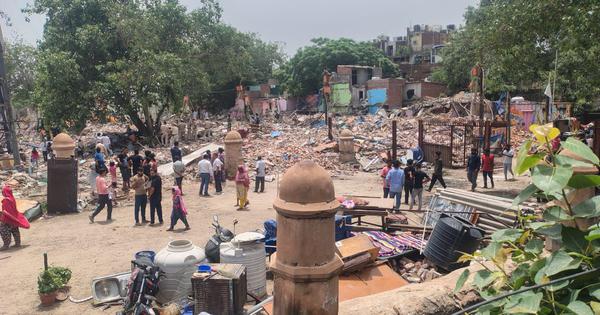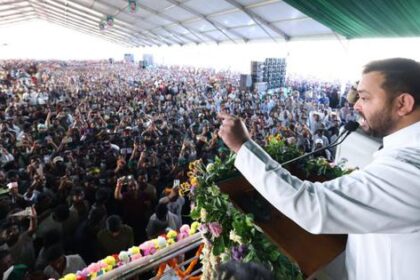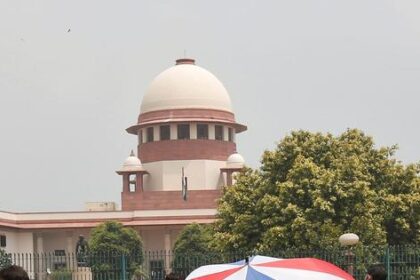Court emphasizes urgent need for action on housing allotment for displaced families in Jangpura.
The Delhi High Court has expressed serious concern over the failure of local authorities to comply with its orders regarding the issuance of provisional housing allotment letters for Tamil-speaking migrant families. These families were displaced following the demolition of the Madrasi Camp located in Jangpura. The court described this failure as an act of “wilful disobedience,” highlighting the urgency of the situation.
The court’s directive, issued on September 26, noted that continued non-compliance could lead to further legal action against the officials responsible. The Madrasi Camp, which had stood for decades near the Barapullah drain by Nizamuddin Railway Station, was home to around 370 tenements primarily occupied by families from Tamil Nadu. Its demolition took place on June 1, following an earlier court order from May 9 that mandated the clearance of the area due to concerns over unauthorized encroachment and waterlogging during monsoon seasons.
In its earlier judgment, the court classified the camp as an “unauthorized encroachment” obstructing drainage systems. It also emphasized the need for the rehabilitation and relocation of eligible residents under relevant laws, including the Delhi Urban Shelter Improvement Board Act and the Delhi Slum and Jhuggi Jhopri Rehabilitation and Relocation Policy. Out of the 370 families that resided in the camp, the Delhi Urban Shelter Improvement Board determined that only 215 were eligible for housing. These families were subsequently offered residential units in Narela, a location that is over 35 kilometers away from Jangpura.
The remaining 155 families did not meet the necessary documentation or eligibility criteria, leading them to file appeals for reconsideration. An appellate authority had initially ruled in favor of some previously deemed ineligible residents, but this decision was later overturned by the chief executive officer of the board. This prompted the affected families to approach the court for recourse.
On May 29, Justice Sachin Datta intervened by staying the CEO’s decision, stating that the reversal of the appellate authority’s findings was prima facie without jurisdiction. The court had instructed the Delhi Development Authority to issue provisional demand-cum-allotment letters to the petitioners in accordance with the allotments provided to other eligible residents from the Madrasi Camp.
During a hearing on September 26, the Delhi Development Authority reported to the court that it had not yet received the necessary funds from the Public Works Department for the relocation process. However, the petitioners contended that the Public Works Department had already deposited Rs 27 crore intended for the relocation of 318 jhuggis. Justice Datta remarked that any disputes regarding the sufficiency of the funds did not excuse the failure to comply with the court’s orders.
To facilitate a resolution, the court directed that a meeting be convened within two weeks involving the housing director of the Delhi Development Authority, senior officials from the Delhi Urban Shelter Improvement Board, and the chief engineer from the Public Works Department. This meeting aims to ensure compliance with the court’s directives and address the ongoing issues surrounding the housing allotment for the displaced families.








